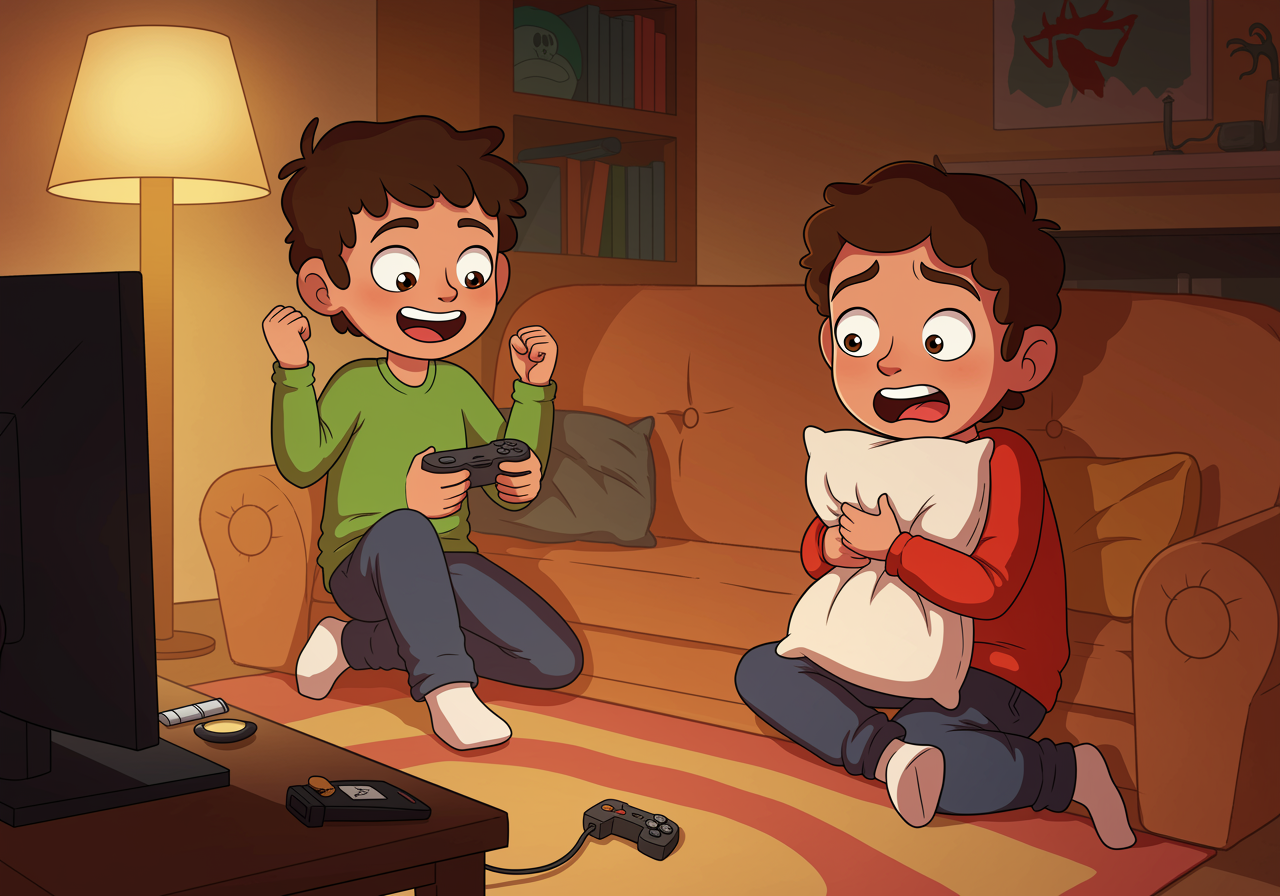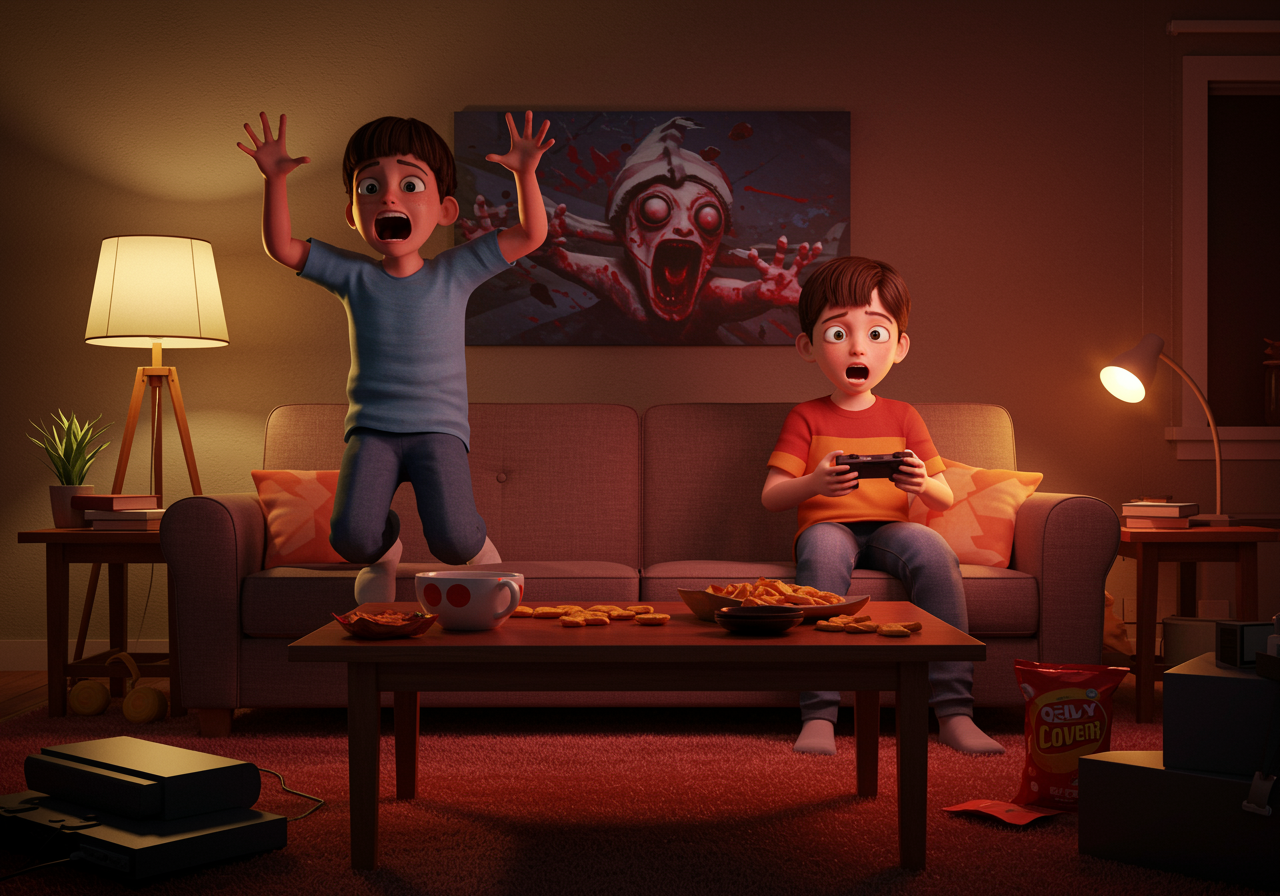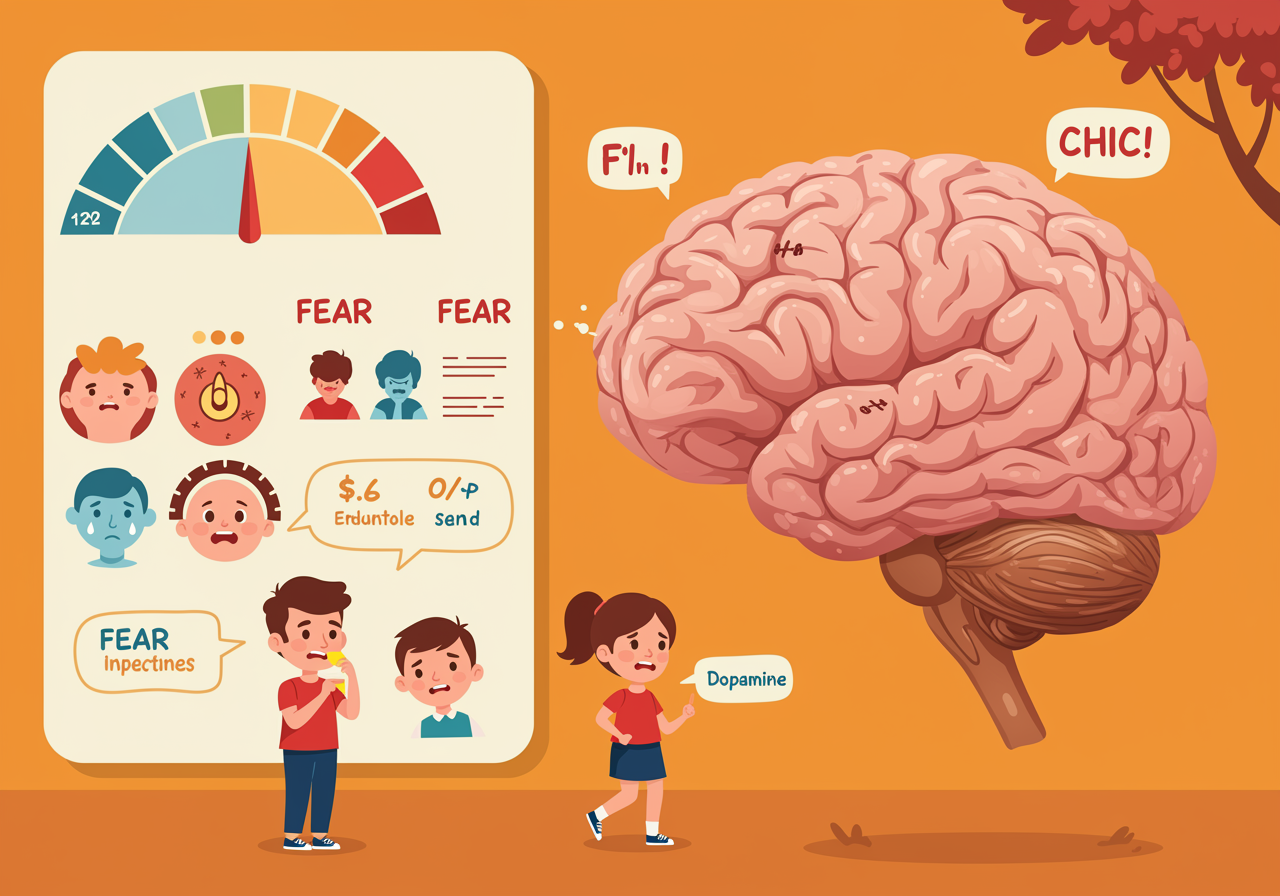Your Brain on Jump Scares: Why Horror Games Hit Different

Discover why your friend screams at Five Nights at Freddy’s while you stay calm as a cucumber
Ever wonder why horror games make some players hide behind pillows while others laugh at the scary parts?
Overview
Have you ever noticed how your friend might scream and jump during a horror game while you barely flinch? Or maybe you're the one hiding behind a pillow while your sibling laughs at the scary parts! This fascinating difference isn't about being brave or scared – it's about how our individual brains are wired. Understanding these differences helps us appreciate that everyone's brain works uniquely, and there's no 'right' way to react to fear. Plus, it's pretty cool science!

Understand in 30 Seconds
Get up to speed quickly
- Your Fear Alarm System: Everyone has an 'alarm system' in their brain called the amygdala that decides how scary something feels. Some people's alarms are super sensitive, others are more chill.
- Safe Scares vs Real Danger: Your brain knows video game scares aren't real danger, but it still practices the fear response anyway – like a fire drill for your emotions!
- Personality Plays a Part: Some people naturally seek thrills and excitement, while others prefer calm experiences. Neither is better – they're just different brain styles.
- Fear Can Be Fun: When we know we're safe, fear can actually release feel-good chemicals that make scary games exciting rather than truly terrifying.
Real Life Scenario
Situations you can relate to
Imagine you and your best friend are playing the same horror game. When a monster jumps out, you barely blink while your friend practically launches out of their chair! What's happening? Think of your brain like a house with a security system. Your friend's security system has motion sensors everywhere – even a leaf blowing by sets off alarms. Your system might need someone actually rattling the doorknob before it reacts. Neither system is broken; they're just calibrated differently! Your friend's brain is saying 'ALERT! MONSTER!' while yours is saying 'Eh, just pixels on a screen.' The cool part? Both of your brains are working perfectly – just differently.

Role Play
Spark a conversation with “what if” scenarios
What if you could adjust your brain's 'fear sensitivity' like a volume dial?
- Role play: Take turns being the 'Brain DJ' and dial up or down each other's reactions to pretend scary situations, then discuss what level feels right for different activities.
What if you had to explain to an alien why humans enjoy being scared by games?
- Role play: One person plays the confused alien asking questions, while the other explains how 'safe fear' can actually be fun and exciting.
What if you were a video game designer trying to scare different personality types?
- Role play: Design imaginary scary game elements for 'thrill-seekers' versus 'comfort-lovers' and explain your choices.
FAQs
Frequently asked questions people want to know
Does being scared by games mean I'm weak or brave?
Neither! Fear responses are just how your individual brain is wired. Some people's brains are more sensitive to potential threats, others less so. It's like having different colored eyes – just a natural variation.
Can playing scary games change how my brain reacts to fear?
Sort of! Your brain can get used to certain scares through practice, but your basic fear personality usually stays the same. It's like building up tolerance, not changing who you are.
Why do some people love horror games while others hate them?
People who enjoy them often get a rush of excitement from the 'safe danger.' Their brains release happy chemicals during the scary parts. Others find fear unpleasant even when safe, and that's totally normal too!
Examples in the Wild
See how this works day to day
- Studies show that people who enjoy horror games often have higher levels of sensation-seeking personality traits and different dopamine responses to thrilling experiences. (Journal of Media Psychology, 2023)
- Brain imaging research reveals that horror game players show varied amygdala activation patterns, with some showing intense responses while others remain relatively calm during scary scenes. (Frontiers in Psychology, 2022)
- Gaming researchers found that players' real-world anxiety levels don't always predict their reactions to video game scares, suggesting different brain pathways for real versus simulated threats. (Computers in Human Behavior, 2023)
- A recent study discovered that horror game tolerance can be influenced by factors like time of day, stress levels, and even whether someone is playing alone or with friends. (International Journal of Gaming Research, 2023)
In Summary
What you should know before you start
- Everyone's brain has a unique 'fear sensitivity setting' that affects how scary games feel to them
- Your brain can tell the difference between real danger and game scares, but still practices fear responses anyway
- Some people's brains release 'happy chemicals' during safe scares, making horror games fun rather than frightening
- There's no 'right' way to react to scary games – sensitive and calm responses are both completely normal
Pro-tip for Parents
You got this!
If your child feels embarrassed about their fear reactions (whether too scared or not scared enough), remind them that brain differences are like having different favorite foods – neither right nor wrong, just individual. Help them find games that match their comfort level, and avoid pushing them toward or away from scary content. The goal is understanding their unique brain, not changing it.

Keep an Eye Out For
Find these examples in everyday life
- News about new VR horror games and how they affect players differently than traditional games
- Research studies about video games and brain development in teens
- Discussions about age ratings and content warnings in gaming becoming more personalized
Explore Beyond
Look up these related research topics
- How different types of music and movies affect our brains similarly to games
- Why some people love roller coasters while others prefer gentle rides
- How our brains develop risk assessment and decision-making skills during adolescence